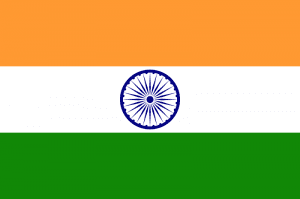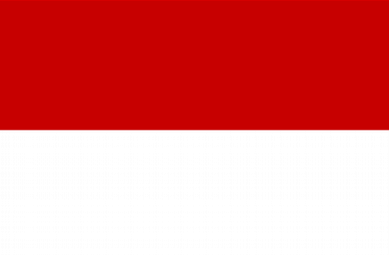REgional Activities Asia
25.09.2023 Comprehensive compliance training for entrepreneurs from Bengaluru
Bengaluru (India)Read more09.03.2023 For women’s rights in business at the 6th Gender Equality Summit
New Delhi (India)Read more28.01.2022 SHE-BID: WOMEN ENTREPRENEURS SHARE SUCCESS STORIES ON ACTION DAY
Indonesia, onlineRead more29.09.2021 SHE-BID: “Empowering Women-led Entrepreneurs to access Government Contracts with Integrity”
Indonesia, onlineRead more
Country Profile India

Contributing the letter I to the widely cited BRIC acronym, India is a country with indisputably vast economic potential. With a population of 1.3 billion people, India is the world’s largest democracy and since 1991, its economic growth ranks within the top 10% of countries worldwide. The emergence of a sizeable middle class (with the demands and heightened expectations that this brings); the desire to expand the scope of beneficiaries of national economic growth to all corners of the country; and the need for vast improvements in infrastructure, present considerable business opportunities and scope for investment. What’s more, around half of India’s increasingly educated and ambitious population is under 25 years old, meaning a wealth of human capital with the energy and enthusiasm to strive for effective change.
Perhaps unsurprisingly however, India is not problem-free. If the country is to unlock its potential and realise its prophesised status as a global economic power, it must work on knocking down a number of barriers still standing in its way. India must address its deficit in terms of infrastructure adequacy, its overly bureaucratic business environment and its problems relating to corruption. For example, India must make significant improvements to its fundamental public services, such as healthcare, education, transport, power and water supply. According to the World Bank, ‘an estimated 300 million people are not connected to the national electrical grid, and those who are face frequent disruptions.’
Despite the challenges that such an infrastructure deficit brings, it also presents outstanding investment opportunities.
However, for this to materialise, India’s investment climate must undergo significant improvements. The 2018 World Bank’s ‘Doing Business Report’ – a report analysing the ease of doing business in selected countries - ranks India at position 100 out of 190 countries. The report names also several measures undertaken by the Indian government to facilitate starting a business fast and easier, mostly through digital tools. These online tools were introduced to reduce bureaucracy, which presents opportunities for corruption. In 2018, Transparency International’s Corruption Perception Index gives India a score of 41 out of 100.
According to the 2017 Global Corruption Barometer, people in India were most positive about their government's efforts, with over a half saying they were doing well. 41% of respondents felt that corruption had increased in India over the past year (30% less than in 2013) and 35% felt that the government’s actions against corruption had been ineffective (33% less than in 2013). The TRACE Matrix 2017, which measures business bribery risk on the basis of the risk score of Business Interactions with the Government, Anti-bribery Laws and Enforcement, Government and Civil Service Transparency and Capacity for Civil Society Oversight, ranked India at 88/200. The devastating effects of these problems in the context of a country with such potential are indicated by the Human Development Index 2016, which ranks India at 131/188 (with no change from the previous year), indicating only medium human development.
India is, however, taking steps to address the problem. In 2013, the Prevention of Corruption (Amendment) Bill was announced, with provisions aiming to hold commercial organisations liable for failing to prevent bribery by associated persons – a provision resembling the UK’s Bribery Act. The Government introduced the Bill on April 4, 2018. 2015 also saw the enactment of the Black Money and Imposition of Tax Act, which regulates the concealment of income and assets abroad of Indian residents. It is also reported that the government plans to make it an offence under Indian law to bribe a foreign public official.
REGIONAL ACTIVITIES in INDIA
25.09.2023 Comprehensive compliance training for entrepreneurs from Bengaluru
Bengaluru (India)Read more09.03.2023 For women’s rights in business at the 6th Gender Equality Summit
New Delhi (India)Read more27.08.2021 THE ALLIANCE FOR INTEGRITY’S ADVISORY GROUP IN INDIA MEETS FOR THE 3RD TIME IN 2021
India, onlineRead more04.06.2021 Supporting Women Entrepreneurs in Setting Up Effective Compliance Management Systems
India, onlineRead more03.06.2021 Strengthening Integrity and Transparency in the Indian Healthcare Sector
India, onlineRead more08.10.2020 Integri-TEA: How effective contract management can help to overcome the crisis
India, OnlineRead more30.07.2020 International Panel Series: Shaping a Sustainable Business Post Covid-19
India, OnlineRead more24.07.2020 Business integrity trainers from India and Indonesia concretise their future collaboration
Indonesia and India, OnlineRead more23.06.2020 Strengthening cooperation between business integrity trainers in India and Indonesia
India and Indonesia, OnlineRead more
at a Glance
| Population: | about 1.3 billion inhabitants | GDP per capita: | 1,709.6 US$ (2016) |
| Form of government: | Parliamentary democracy | TI CPI rank: | 78 out of 180 (2018) |
| GDP: | 2,264 billion US$ (2016) | Score: | 41/100 (2018) |
ALLIANCE FOR INTEGRITY IN INDIA
India was the first country where the Alliance for Integrity was active in. The activities in India started in November 2013 with a pilot phase that lasted a year. During that pilot phase the Alliance for Integrity, in cooperation with the Confederation of Indian Industry and the Federation of German Industries, conducted a survey among senior managers of companies operating in India, who have experience in compliance. Read the whole survey here. Moreover, compliance trainings were conducted throughout the year. Our office in India is located in New Delhi. Beside the tasks of all the country offices, such as awareness raising and capacity building, the initiative developed a compliance handbook for senior management.
The Advisory Group India was established in November 2015. The Advisory Group India is comprised of the following members:
- Private Sector: Mahindra Sanyo Special Steel Pvt. Ltd., Merck India, Power Weave,
TUV Rheinland India Pvt. Ltd., Thyssenkrupp India Group of Companies, Ujala Cygnus Healthcare Services Pvt. Ltd. - International Organisations: Global Compact Network India (GCNI)
- Semi-Government Organisation: AHK Indo-German Chamber of Commerce, The Indian Institute of Corporate Affairs (IICA), Indian Institute of Technology (Chennai)
- Civil Society: Seegos, Every Drop Counts Foundation
COUNTRY PROFILE INDONESIA

Indonesia is a presidential republic, independent since 1945 and with more than sixteen thousand islands, it is the largest island country in the world by the number of islands. It is also the world's fourth most populous country, with a population of around 261 million people.
Even though Indonesia was hit hard by the Asian Financial Crisis in the late 1990s, the Indonesian macroeconomic indicators started to come back on track in the mid-2000s. Despite a little slowdown in growth since 2012, Indonesia’s growth trajectory remains impressive. The country’s gross national income per capita has steadily risen and during the global financial crisis, Indonesia belonged to the only three G20 members posting growth (together with India and China).
After the Asian crisis and the regime change in 1999 a process of political democratization and liberalization was initiated that is continuing up to the present day.
Despite the economic growth and significant improvements of the conditions for investment, corruption remains a serious impediment to Indonesia's development. However, progress has been made and tackling corruption has been a major priority of government in recent years. The biggest step in that direction by the Indonesian government was the establishment of the Corruption Eradication Commission (Indonesian: Komisi Pemberantasan Korupsi, abbreviated KPK) to free Indonesia from corruption by investigating and prosecuting cases of corruption as well as monitoring the governance of the state.
Also due to the efforts payed, Indonesia's corruption perception ranking has steadily declined in the past few years. In 2018, Transparency International ranked Indonesia 89th out of 180 countries in its index measuring how corrupt countries’ public sectors are perceived to be.
REGIONAL ACTIVITIES in INDONESIA
01.12.2023 New guidebook offers Indonesian companies tools for human rights and anti-corruption due diligence
Jakarta (Indonesia)Read more28.01.2022 SHE-BID: WOMEN ENTREPRENEURS SHARE SUCCESS STORIES ON ACTION DAY
Indonesia, onlineRead more28.01.2022 SHE-BID: WOMEN ENTREPRENEURS SHARE SUCCESS STORIES ON ACTION DAY
Indonesia, onlineRead more29.09.2021 SHE-BID: “Empowering Women-led Entrepreneurs to access Government Contracts with Integrity”
Indonesia, onlineRead more29.09.2021 SHE-BID: “Empowering Women-led Entrepreneurs to access Government Contracts with Integrity”
Indonesia, onlineRead more10.09.2021 Second Advisory Group Indonesia Meeting: A Major Step towards Sustainability in Indonesia
Indonesia, onlineRead more10.09.2021 Second Advisory Group Indonesia Meeting: A Major Step towards Sustainability in Indonesia
Indonesia, onlineRead more06.05.2021 Advisory Group Indonesia prepares next steps towards organisational independence
Indonesia, onlineRead more06.05.2021 Advisory Group Indonesia prepares next steps towards organisational independence
Indonesia, onlineRead more25.02.2021 Compliance Behaviour: A New Ethical Dilemma in the Covid-19 Pandemic Era
Indonesia, onlineRead more25.02.2021 Compliance Behaviour: A New Ethical Dilemma in the Covid-19 Pandemic Era
Indonesia, onlineRead more
at a Glance
| Population: | 261 Million inhabitants | GDP per capita: | 3.570.3 US$ (2016) |
| Form of government: | Presidential Republic | TI CPI rank: | 89 out of 180 (2018) |
| GDP: | 932.259 billion US$ (2016) | Score: | 38/100 (2018) |
alliance for integrity in INDONESIA
The Alliance for Integrity started its activities in Indonesia in mid-2016. The Advisory Group comprises representatives of the following organisations:
- Private sector: PT Asuransi Allianz Life Indonesia, Merck Group, PT Siemens Indonesia, Indonesia Business Links, Hongkong-Indonesia Business Association
- Public sector: Indonesian Investment Coordination Board (BKPM)
- Civil society: Transparency International Indonesia
- International Organisations: United Nations Office on Drugs and Crime, Global Compact Network Indonesia
- Academia: Universitas Paramadina
A Women Entrepreneurs and Professionals Working Group was set up in 2017 in Bandung, West Java. At their meetings, representatives from women’s business associations and female entrepreneurs from various industries exchange experiences and challenges of conducting clean business and discuss how collective action can foster business integrity.
Trainers
With our Train-the-Trainer programme we have already been able to qualify a number of trainers.
regional working group
The Regional Working Group Asia brings together compliance professionals from the region.





